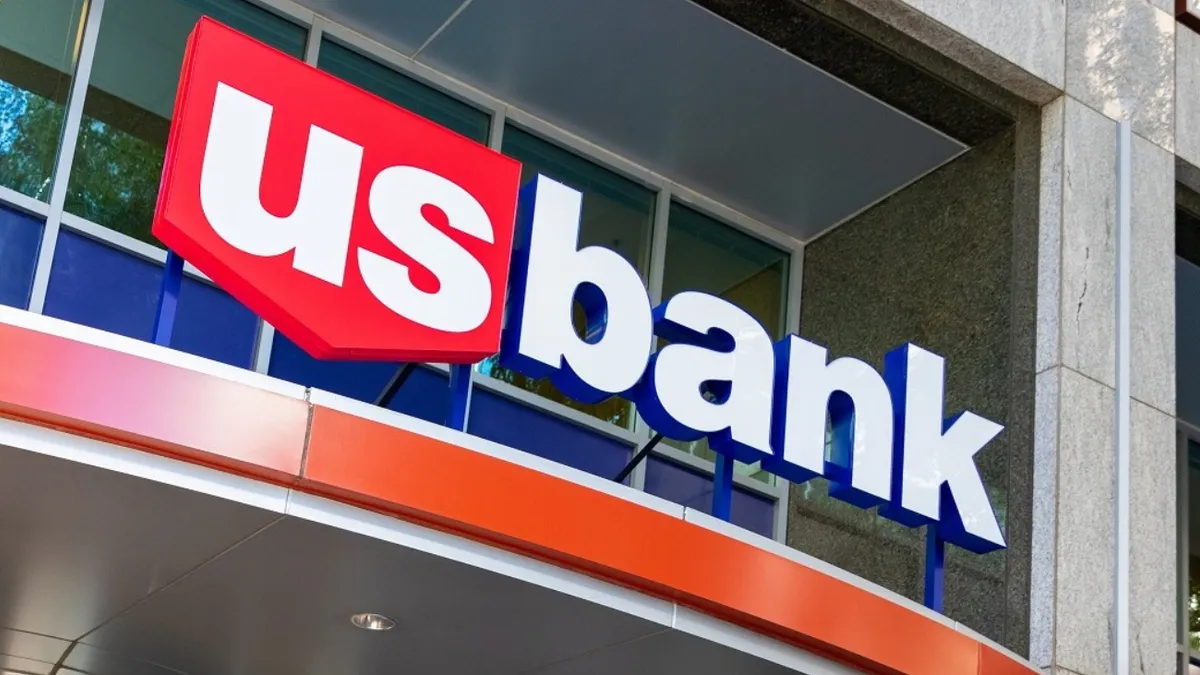Dive Brief:
- Senate Banking Committee Chair Sherrod Brown, D-OH, and four other Democratic lawmakers sent a letter Thursday to U.S. Bank CEO Andy Cecere seeking more details surrounding the fake-accounts scandal that prompted the Consumer Financial Protection Bureau (CFPB) last week to fine the Minneapolis-based lender $37.5 million.
- “It is unacceptable that U.S. Bank provided incentives to and pressured its employees to take advantage of their unique access to a veritable treasure trove of sensitive, personal information to sign up unsuspecting customers for fee-generating financial products and services,” Brown wrote in a letter also signed by Sens. Elizabeth Warren, D-MA; Catherine Cortez Masto, D-NV; Robert Menendez, D-NJ; and Chris Van Hollen, D-MD.
- The senators are requesting that U.S. Bank tell them by Sept. 6 how many deposit accounts the bank opened in connection with the scandal since 2010, along with any credit cards it issued or lines of credit it approved — and a state-by-state breakdown.
Dive Insight:
Brown is no stranger to asking for follow-up information after a bank makes headlines for missteps. The senator wrote Wells Fargo in May, asking CEO Charlie Scharf to fix “once and for all … weaknesses that have plagued the bank for more than a decade.”
That letter came less than two weeks after a dozen current and former employees of the bank told The New York Times that Wells Fargo set up sham interviews for nonwhite and female job-seekers for positions that had been essentially filled so the bank would meet a target quotient of diverse candidates.
Thursday’s letter referenced another of Wells Fargo’s missteps — its 2016 fake-accounts scandals that spurred penalties from numerous regulators, including an ongoing asset cap by the Federal Reserve.
“Troublingly, this is the second time in less than a decade where the federal government has sought accountability and redress by a major bank for perpetuating this practice,” the senators wrote to Cecere on Thursday.
A spokesperson for U.S. Bank told American Banker on Thursday, “We look forward to responding to the letter.”
As with the May letter to Scharf, Brown capped his note to Cecere by indicating he “look[s] forward” to the CEO’s participation in the Senate Banking Committee’s annual Wall Street oversight hearing in September, on a date yet to be determined.
The senators are also asking U.S. Bank when senior leadership and the bank’s board became aware of the unauthorized-account push. They also wanted to know whether any employees involved with the scandal are still employed by the bank and whether any unauthorized accounts are still open.
They asked how incentives related to the program factored into performance reviews, and sought details surrounding how the bank informed affected customers.
And the senators asked how much revenue the program generated for U.S. Bank, and what data privacy measures the bank has incorporated since the CFPB handed down its penalty.
The letter comes, too, as U.S. Bank awaits regulatory approval of its proposed $8 billion merger with MUFG Union Bank — a prospect that, by September, will stretch into its second year. President Joe Biden last year issued an executive order seeking “more robust scrutiny” surrounding bank mergers and transactions. And indeed, U.S. Bank faced a hearing in March with the Federal Reserve, the Office of the Comptroller of the Currency (OCC) and community advocates telegraphing their concerns regarding the tie-up.
The senators did not mention the pending acquisition in their letter Thursday. But Jeremy Kress, a University of Michigan professor who previously worked on bank merger oversight at the Fed, told American Banker the CFPB’s action is "at a minimum likely to delay any approval” of the merger.
"When a merger applicant has a recent consent order, regulators will generally want to make sure that the bank remediates, and then validate that remediation — perhaps through an examination cycle,” he said.
Several of the senators who signed Thursday’s letter regularly send follow-ups to banks over perceived miscues that generate headlines. Brown, Warren, Menendez and Van Hollen wrote the CEOs of seven banks last month, asking them to do more to help customers defrauded by scam artists on the payments network Zelle.











